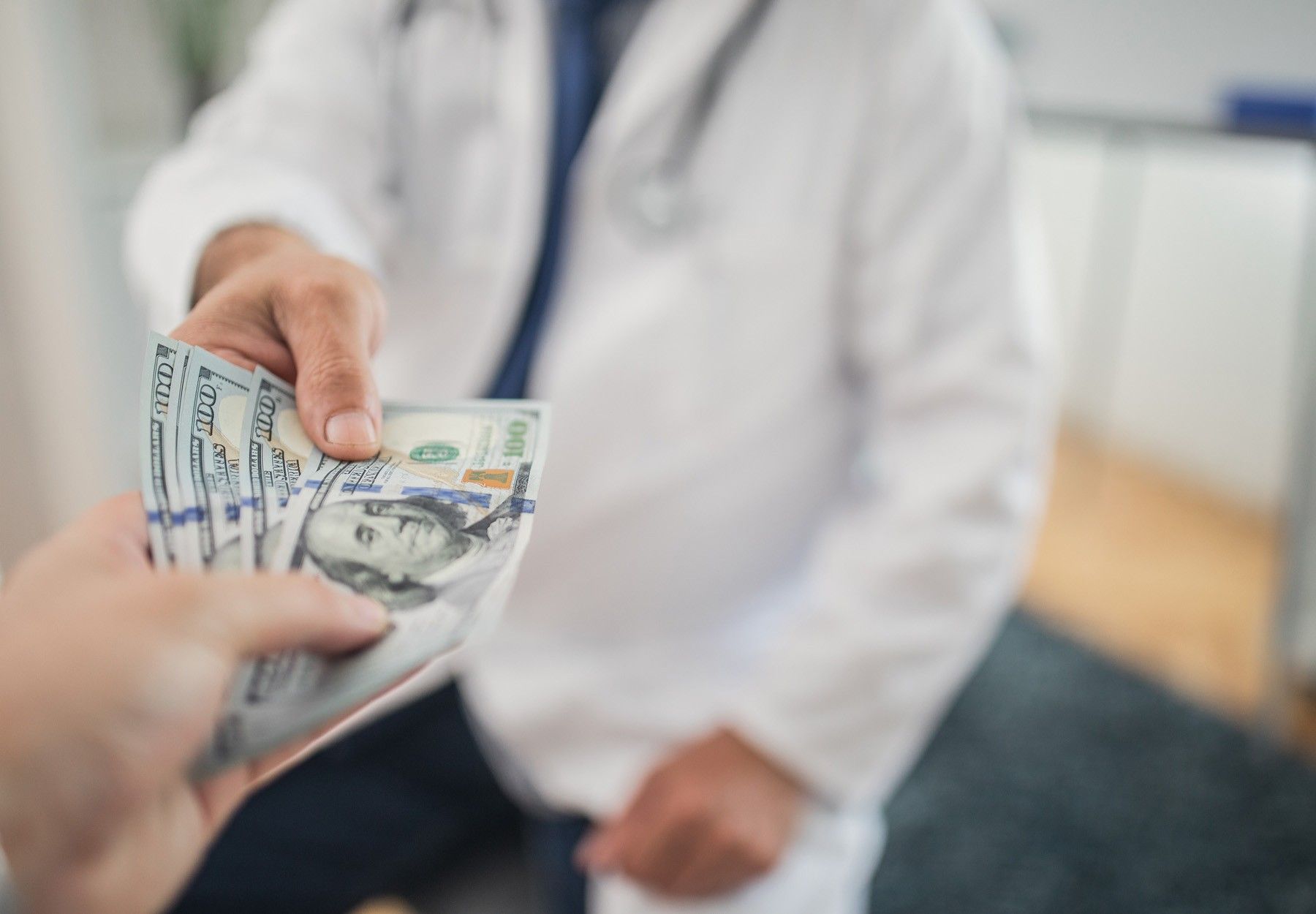Recent Kickback Cases Range from $300 Million Scheme to a Free Service
Of this month’s four Labs in Court cases, three involved kickbacks resulting in widely varying penalties.

Labs, Doctors Plead Guilty to $300 Million Kickback Conspiracy
Case: Just two months after being charged, all 11 defendants have pled guilty in a Texas federal court to running a kickback scheme costing Medicare over $300 million. The US Attorney claims that the founders of lab companies Unified Laboratory Services, Spectrum Diagnostic Laboratory, and Reliable Labs LLC paid kickbacks to induce medical professionals to order millions of dollars' worth of medically unnecessary lab tests; they then violated the False Claims Act by billing Medicare and other federal healthcare programs for the tests.
Significance: According to court documents, the lab companies disguised the kickbacks as payments for medical “advisory services” that were never provided. They also paid portions of referring doctors’ staff salaries and office lease payments, based on how many tests they referred each month. The labs even threatened to cut off one of the providers unless he stepped up his referrals. The threat worked; before long, the provider was generating an average of 20 to 30 referrals per day. Another strategy they used to cover their tracks was to turn one of the labs, Reliable, into a physician-owned lab in which physicians were offered ownership interests depending on how many referrals they made.
Giving Oncologists Free Access to Drug Price Service May Be Kickback Violation
Case: Did a medical supplier violate the Anti-Kickback Statute (AKS) by offering oncology practices free access to a Margin Analyzer enabling them to compare reimbursement rates of “therapeutically interchangeable” drugs and receive recommendations based on that data? More precisely, was free access to the business management tool illegal “remuneration” banned by the AKS? The former business development executive who filed a qui tam whistleblower lawsuit against the supplier said it was. While not making a final determination on the question, the New York federal court ruled that there was enough evidence supporting the claim’s plausibility. Result: The whistleblower could take his claim to trial, provided that he fix certain technical legal deficiencies in his pleadings.
Significance: Courts have consistently interpreted the term “remuneration,” as used in the AKS, expansively so that it can encompass just about anything of value. The whistleblower in this case was able to turn the tables on the supplier by using its own marketing materials promoting just how valuable the Margin Analyzer was to oncology practices. In addition, the tool offered “independent” value and wasn’t tied to the services it was already providing clients. Both sides would get a shot at the “remuneration” question during the trial. But at this point, the issue wasn’t clear cut enough to warrant dismissal of the claim.
[United States v. McKesson Corp., 2022 U.S. Dist. LEXIS 81875]
Florida Practice Pays $24.5 Million to Settle Urine Drug Test False Billing & COVID-19 Fraud Claims
Case: Tampa-based Physician Partners of America (PPOA) and its founder and former chief medical officer have agreed to shell out $24.5 million to settle claims of falsely billing Medicare and Medicaid for medically unnecessary urine drug tests (UDT). The feds claim that PPOA required physicians to order presumptive and definitive UDTs at the same time. The medical necessity of more expensive definitive tests is based on the results of the presumptive test. So, ordering both tests at the same time without awaiting the results of the presumptive test is a no-no. To make matters worse, PPOA also allegedly violated the Stark Law by paying physicians a 40 percent cut on the profits generated by the UDTs they ordered. Making patients undergo genetic and psychological testing before being seen by a physician added to the overall fraud effect.
Significance: Settlements for alleged simultaneous ordering of presumptive and definitive UDTs has become a common theme in recent months. Last month, North Carolina lab Radeas LLC and Nevada-based MD Labs Inc. settled similar claims for over $11 million a pop. One twist to this new case is that PPOA is also alleged to have made a false statement in connection with a loan obtained via the Small Business Administration’s (SBA) Paycheck Protection Program provided to businesses to keep workers on the payroll during the COVID-19 outbreak.
Covering Medical Practice’s Holiday Party Costs Crosses the Anti-Kickback Line
Case: Advanced Dermatology & Skin Cancer Center has been smacked with a $50,000 fine for alleged kickback law violations. The OIG contends that the Ohio-based personalized cancer treatment center and its physician owners offered and paid remuneration to a dermatology practice in the form of:
- Payment to three vendors to cover holiday party expenses;
- A printer cartridge; and
- Payments to one of the practice’s employees for preparing, packing, and completing paperwork for specimens referred to the center.
Significance: Nobody would ever confuse the alleged violations in this case with Millennium Laboratories or any of the other notorious lab kickback cases of the past. And $50,000 is on the low end of kickback settlement payments. However, the case is significant because the center stepped up and self-disclosed the payments. In so doing, it likely avoided what might have been a much bigger penalty.
Subscribe to view Essential
Start a Free Trial for immediate access to this article